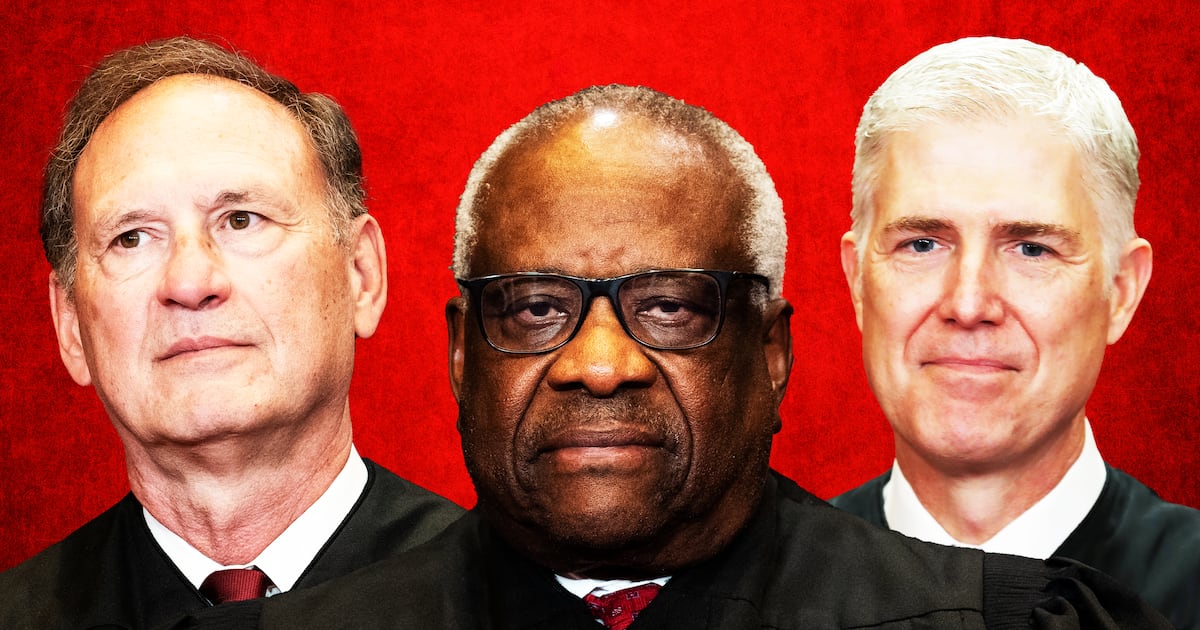DUNWOODY, Georgia — Donald Trump’s name may not have been on the ballot in Georgia’s 6th Congressional District Tuesday night, but the special election to replace Health and Human Services Secretary Tom Price in Congress was all about Donald Trump.
Democrat Jon Ossoff, whose campaign was fueled locally and nationally by anti-Trump anger, finished first with 48.6 percent of the vote. Because Ossoff did not clear 50 percent, he will now go to a June 20 runoff against Karen Handel, the former secretary of state and the second-highest finisher at 19.5 percent. After a ballot malfunction, CNN projected the race would go on to a runoff just after midnight Wednesday.
“We will be ready to fight and win in June, if necessary,” Ossoff told his supporters just before CNN’s projection. “So bring it on.”
ADVERTISEMENT
Handel began and ended the race as the best-known quantity among local Republican voters. In her campaigns for governor in 2010 and Senate in 2014, she concentrated much of her time and resources in Atlanta’s wealthy northern suburbs, including the 6th District, and benefited in the special election from her high name-recognition.
Ossoff, meanwhile, benefited from not being a Republican. The district, which Price won with 60 percent of the vote in November, spilt itself nearly evenly Tuesday night, with just under half of the votes going for Ossoff and the rest going for the 11 Republicans running. One of the weakest brands for Republicans in the race turned out to be the president’s own. Of the Republicans who ran on the Trump mantle, none cracked 10 percent. Most didn’t get anywhere close.
Bruce LeVell, the chairman of Trump’s national diversity coalition and an early supporter, finished with 0.3 percent of the vote, as did Amy Kremer, a Tea Party founder who had been endorsed by Sean Hannity and Katrina Pierson, the Trump campaign’s national spokesperson. Bob Gray, who ran an ad falsely claiming he was the only Republican in the race to support Trump, finished with 9.8 percent of the vote, and only after the 45 Committee, an outside group funded by Trump donors, ran an attack ad against him.
Unlike other Republicans in the race, Handel never sold herself as a Trump Republican, a wise move given Trump’s own struggles in the wealthy, highly educated district. Trump beat Hillary Clinton in November here by just one percentage point, while Mitt Romney won in 2012 by 24.
When Republicans look back at what they could have done differently, failing to unite behind one or two candidates may prove to have been a significant error. At her Election Night party, Handel defended the decision as the right thing to do. “There was no coronation, which is what occurred on the Democratic side,” she told reporters. “Everyone brought great ideas and new perspectives to the table, and I appreciated that.”
But without at least some of the other 10 Republicans in the race, Handel might have united the GOP vote and skipped a runoff against Ossoff, who lives just outside the district lines and could not vote for himself on Tuesday.
While the Republicans for much of the campaign spent money, time, and resources attacking each other, Democrats united quickly behind Ossoff, even with four other Democrats in the race, including two state representatives. The Daily Kos endorsed Ossoff in January, pumping millions into his campaign, and was followed quickly by End Citizens United and the Sierra Club.
For Ossoff, running against Trump provided the kind of momentum and enthusiasm money can’t buy. And it also helped him raise buckets and buckets of money. Thanks to a flood of grassroots support across the country, he raised nearly $8.3 million in three months and was on pace to reach $10 million.
For Ossoff donors and supporters, the race was all about one thing: sending a message Trump.
Carol Walton, an independent voter who canvassed for Ossoff, said Trump was “a huge factor” in her decision to support and vote for the Democrat. “I’m terrified of Trump, absolutely terrified,” she said. “We should be terrified,” added Walton’s friend Lynn Snyder, who said she felt like volunteering for Ossoff’s campaign was a way to do something constructive “once I got over my post-election stress disorder.”
Cassidy Forrest, a Sandy Springs resident, used to work for a Tea Party Republican on Capitol Hill. But she voted for Ossoff on Tuesday. “I got pretty pissed off around the election,” she said. “And I felt like I was one of those people that was so fed up, I just needed to do something about it.”
With Ossoff and Handel headed to a runoff, outside interest groups say they’ll stay involved in the race. But Jeff Schoenberg, a lawyer and former Democratic staff in Atlanta, predicted the race will become “exponentially harder” for Ossoff to win as Republicans presumably unite behind Handel. Although polls have shown an even race between the two in a head-to-head matchup, “Democratic enthusiasm seems to be at a high point,” Schoenberg said.
Trump will surely remain a flashpoint in the race, as will Handel’s experience as the short-lived vice president for public policy for the Susan G. Komen Foundation, a post she left quickly after moving to restrict the foundation’s support for Planned Parenthood because of its role as an abortion provider. Handel wrote a book about the experience called Planned Bullyhood.
The votes of women in the district will be as important to the eventual winner in the 6th District as they were for Ossoff’s out-of-nowhere campaign. Ossoff thanked women, in particular, for their work in his race. And as it became clear Handel would go on to the runoff against Ossoff, Georgia Republicans began using a hashtag already familiar to most Democrats: #I’mWithHer.






